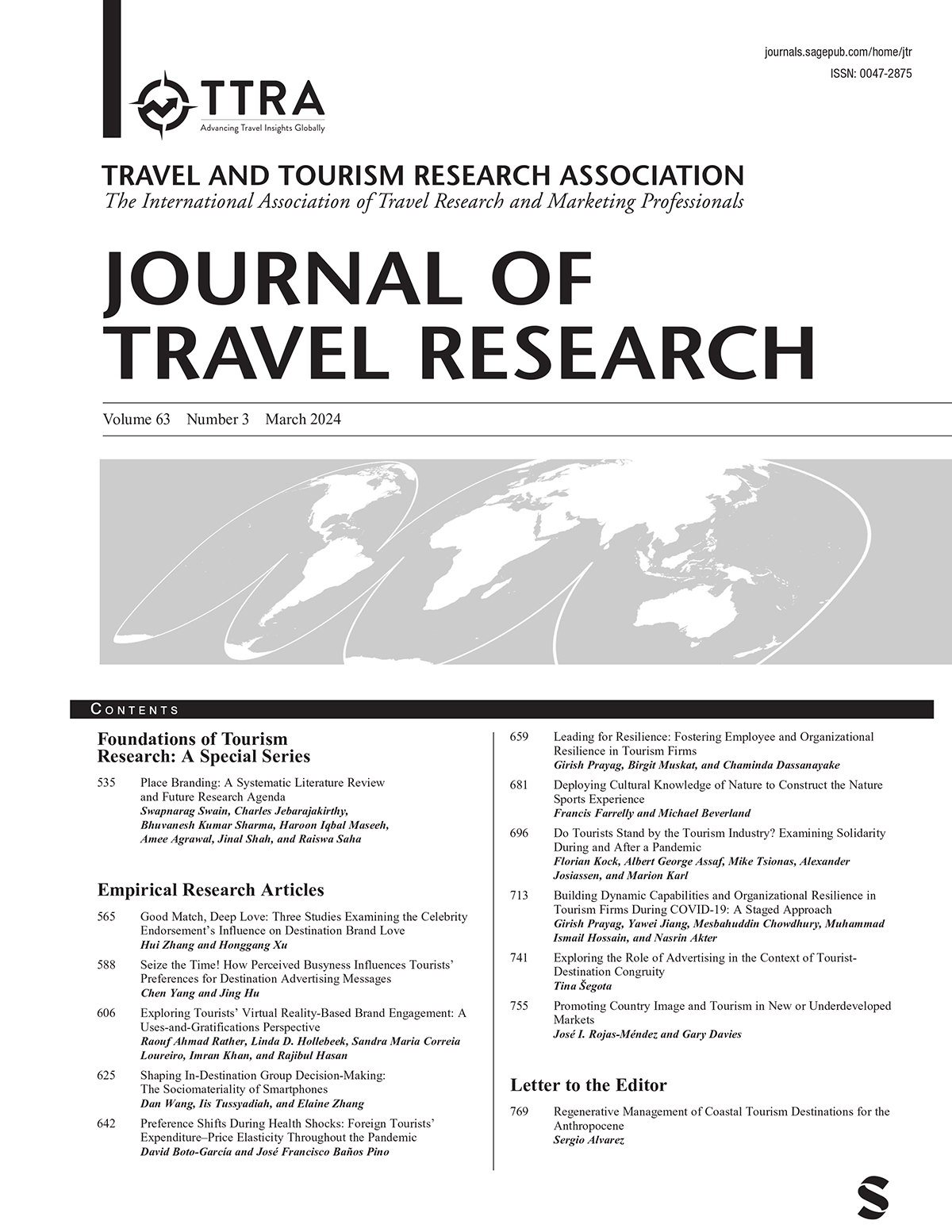当 ChatGPT 给出错误答案时:生成式人工智能提供的不准确信息对旅游决策的影响
IF 7
2区 管理学
Q1 HOSPITALITY, LEISURE, SPORT & TOURISM
引用次数: 0
摘要
本研究探讨了 ChatGPT 提供的不准确信息如何影响旅行者对建议的接受程度。在可访问性-诊断性框架的基础上进行了六项实验。这些实验考察了不正确信息的显著性和类型的调节作用及其对决策的影响。结果表明,当不正确信息不存在时,参与者会认为信息更准确、更可信,从而产生更强烈的就医意愿。然而,当不正确信息出现且更突出或出现在同一领域时,他们的访问意图就会下降。当涉及多个领域或参与者专注于最初的任务时,这种效应就会减弱。这项研究强调,错误信息的突出程度和类型都是边界条件,并为人工智能在旅游业中的应用提供了启示。此外,它还为在线旅行社的用户界面和用户体验设计规划提供了实际意义。本文章由计算机程序翻译,如有差异,请以英文原文为准。
When ChatGPT Gives Incorrect Answers: The Impact of Inaccurate Information by Generative AI on Tourism Decision-Making
This study investigates how inaccurate information provided by ChatGPT impacts travelers’ acceptance of recommendations. Six experiments were conducted based on the accessibility-diagnosticity framework. These examined the moderating role of the prominence and type of incorrect information and their effects on decision-making. The results show that participants perceived more accuracy and trustworthiness, leading to stronger intentions to visit when incorrect information was absent. However, there was a decline in their intentions to visit when incorrect information was present and more prominent or in the same domain. This effect diminished when multiple domains were involved or when participants were focused on the initial task. The research highlights that both the prominence and type of incorrect information are boundary conditions and provides insights into AI applications in tourism. Furthermore, it offers practical implications for online travel agencies in terms of user interface and user experience design planning.
求助全文
通过发布文献求助,成功后即可免费获取论文全文。
去求助
来源期刊

Journal of Travel Research
HOSPITALITY, LEISURE, SPORT & TOURISM-
CiteScore
18.90
自引率
9.00%
发文量
66
期刊介绍:
The Journal of Travel Research (JTR) stands as the preeminent, peer-reviewed research journal dedicated to exploring the intricacies of the travel and tourism industry, encompassing development, management, marketing, economics, and behavior. Offering a wealth of up-to-date, meticulously curated research, JTR serves as an invaluable resource for researchers, educators, and industry professionals alike, shedding light on behavioral trends and management theories within one of the most influential and dynamic sectors. Established in 1961, JTR holds the distinction of being the longest-standing among the world’s top-ranked scholarly journals singularly focused on travel and tourism, underscoring the global significance of this multifaceted industry, both economically and socially.
 求助内容:
求助内容: 应助结果提醒方式:
应助结果提醒方式:


